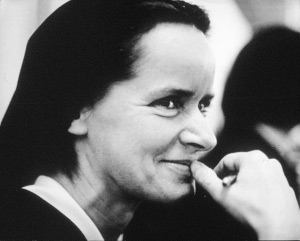A Quote by Garry Trudeau
Comic-strip artists generally have very modest ambitions. Day to day, we labor to fit together all these little moving parts - a character or two, a few lines of dialogue, framing, pacing, payoff - but we certainly don't think of them adding up over time to some larger portrait of our times.
Related Quotes
Taking a comic strip character is very hard to write. Because comics are meant to work in one page, to work in frames with minimalistic dialogue. And a lot of it is left to the imagination of the reader. To do that in film, you've got to be a little more explanatory. And that requires a good screenplay and good dialogue.
You might have, as a character, 30 pages of dialogue a day if you're what they call a 'front-burner story.' So you go home, you learn your lines for the next day, you get up, you're there at 7 in the morning, you do a quick rehearsal, you're on camera, you might leave, you know, at 7 at night and start the whole thing over again.
What The Source becomes, in a physical sense, is almost like this particle accelerator. There's all these different, discrete voices and ideas. If you just saw two of them together perhaps it might seem completely diverse and like, "Why do you have these two people together?" But as it grows and as it speeds up, it kind of creates a larger dialogue.
It's hard to tell if anyone's interested in reading a serialized story. But it's interesting to put in a cliffhanger each week. That was popular in old comic strips. They'd write a weekend story different from the daily strip. So people follow one story day to day, and a separate story on weekends. If you read them, you think "I'll read two more." Then you're like "I gotta find out!" And you read 500 more.
The idea of having dinner together every day with your family removes the pressure from trying to explain everything. You tell us the good parts about your day, but you also tell us the bad parts about your day. And at the end of that, because you're in a ritual, you remove the pressure of admitting you had a failure that day. And it also takes the wind out of having a great day. I mean, it makes you a little bit more normal all the time. That moment of therapeutic sharing is something that happens in food, that doesn't necessarily happen when you're watching TV.

































